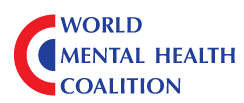
BIOGRAPHY
Dr. Bandy Lee is an internationally recognized expert on violence. Trained in medicine and psychiatry at Yale and Harvard Universities, and in medical anthropology as a fellow of the National Institute of Mental Health, she is currently on the faculty of Yale School of Medicine’s Law and Psychiatry Division. She served as Director of Research for the Center for the Study of Violence (Harvard, U. Penn., N.Y.U., and Yale), co-founded Yale’s Violence and Health Study Group (MacMillan Center for International Studies), and leads a project group for the World Health Organization’s Violence Prevention Alliance. She has consulted with the governments of Ireland and France, as well as California, Connecticut, Massachusetts, and New York on violence prevention programming in prisons and in the community. She played a key role in initiating reforms at Rikers Island, New York City’s correctional facility known for extreme levels of violence. She has been teaching students studying to be public defenders and to become asylum attorneys at Yale Law School since 2003, and a Global Health Studies course of her design, “Violence: Causes and Cures,” since 2013. She has served as consultant to the World Health Organization Violence and Injury Prevention department, UNESCO, and other United Nations bodies, and as speaker to the World Economic Forum. Her interests are in global health approaches to violence prevention and multisectoral collaboration.
EDUCATION & TRAINING
| MDiv | Yale Divinity School (1995) |
|---|---|
| MD | Yale University School of Medicine (1994) |
| Research Fellow | Harvard Medical School |
| Chief Resident | Massachusetts General Hospital |
| Resident | Massachusetts General Hospital |
| Intern | Bellevue Hospital Center |
RESEARCH INTERESTS
Criminal Psychology; Humanities; International Agencies; Public Health; Social Justice; Violence; Global Health; Legal Cases; Psychiatry and Psychology; Phenomena and Processes; Anthropology, Education, Sociology and Social Phenomena
RESEARCH SUMMARY
Formulating the multiple, interlinked determinants of violence, by exploring the interaction between biological, psychological, social, and environmental processes for effective prevention.
Specialized Terms: Violence Prevention, Public Health Approaches, Interdisciplinary and Multisectorial Collaborations, Behavioral Violence, Structural Violence, Social Justice, Global Health, Peace Promotion, and Creative Studies.
SELECTED PUBLICATIONS
- Kaaya SF, Lee B, Smith-Fawzi MC, Mbwambo JK, Msamanga GI. Validity and calibration of the Kiswahili version of the Hopkins Symptom Checklist–25 amongst HIV-positive antenatal clinic attendees in Dar es Salaam, Tanzania. Acta Psychiatrica Scandinavica 106:9-19, 2002.
- Lee B, Gilligan J. The pharmacological treatment of violent youth. Annals of the New York Academy of Sciences 1036:356-381, 2004.
- Gilligan J, Lee B. Beyond the prison paradigm: From provoking violence to preventing it by creating ‘anti-prisons’ (residential colleges and therapeutic communities). Annals of the New York Academy of Sciences 1036:300-324, 2004.
- Lee B, Gilligan J. The Resolve to Stop the Violence Project: Transforming an in-house culture of violence through a jail-based programme. Journal of Public Health 27:149-155, 2005.
- Gilligan J, Lee B. The Resolve to Stop the Violence Project: Reducing violent recidivism in the community through a jail-based initiative. Journal of Public Health 27:143-148, 2005.
- Lee B, Kaaya SF, Mbwambo JK, Smith-Fawzi MC, Leshabari MT. Detecting depressive disorder with the Hopkins Symptom Checklist–25 in Tanzania. International Journal of Social Psychiatry 54:7-20, 2008.
- Kaaya SF, Lee B, Mbwambo JK, Smith-Fawzi MC, Leshabari MT. Detecting depressive disorder with a 19-item local instrument in Tanzania. International Journal of Social Psychiatry 54:21-33, 2008.
- Lee B, Young JL. Building a global health ethic without doing further violence. American Journal of Bioethics 12:59-60, 2012.
- Lee B, Leckman JF, Mbwambo JKK. Violence and health: Current perspectives of the WHO Violence Prevention Alliance. Aggression and Violent Behavior 19:609-615, 2014.
- Lee B, Wexler BE, Gilligan J. Political correlates of violent death rates in the U.S., 1900-2010: Longitudinal and cross-sectional analyses. Aggression and Violent Behavior 19:721-728, 2014.
- Lee B, Marotta PL, Blay-Tofey M, Wang W, de Bourmont S. Economic correlates of violent death rates in forty countries, 1962-2008: A cross-typological analysis. Aggression and Violent Behavior 19:729-737, 2014.
- Lee B., Prabhu M. A reflection on the madness in prisons. Stanford Law and Policy Review 26: 253-268, 2015.
- Lee B, Leckman JF, Khoshnood K. Violence, health, and South-North collaborations: Furthering an interdisciplinary agenda. Social Science and Medicine 146:236-242, 2015.
- Blay-Tofey M., Lee B. Preventing gender-based violence engendered by conflict: The case of Côte d’Ivoire. Social Science and Medicine, 146:341-347, 2015.
- Bouloudnine R, Lee B, Rowe M. In the midst of a mental healthcare crisis: How psychiatrists can better advocate for their clients. Journal of Health Systems and Policy Research 2:15-20, 2015.
- Lee B, Donnelly PD, Cohen L, Garg S. Violence, health, and the 2030 Agenda: Merging evidence and implementation. Journal of Public Health Policy 37S:1-12, 2016.
- Lee B, Gilligan J, Kaaya SF, Schuder KK. Violence and health: Implications of the 2030 Agenda for South-North collaborations. International Journal of Public Health 61:861-862, 2016.
- Lee B, Kjaerulf F, Turner S, Cohen L, Donnelly PD, Muggah R, Davis R, Realini A, Kieselbach B, Snyder MacGregor L, Waller I, Gordon R, Moloney-Kitts M, Lee G, Gilligan J. Transforming our world: Implementing the 2030 Agenda through Sustainable Development Goal Indicators. Journal of Public Health Policy 37S:13-31, 2016.
- Kjaerulf F, Lee B, Cohen L, Donnelly P, Turner S, Davies R, Realini A, Moloney-Kitts M, Gordon R, Lee G, Gilligan J. The 2030 Agenda for Sustainable Development—A golden opportunity for global violence prevention. International Journal of Public Health 61:863-864, 2016.
- Gilligan J, Lee B, Garg S, Blay-Tofey M, and Luo A. A case for studying country regimes in the public health model of violence. Journal of Public Health Policy 37S:133-144, 2016.
- Uwizeye G, Lee B, Krill T. Health system re-design following sexual violence during the genocide in Rwanda. International Journal of Public Health 61:959-960, 2016.
- Mikton CR, Tanaka M, Tomlinson M, Streiner DL, Tonmyr L, Lee B, Fisher J, Hegadoren J, Pim JE, Wang SJS, MacMillan HL. Global research priorities for interpersonal violence prevention: A modified Delphi study. Bulletin of the World Health Organization 95:36-48, 2017.
- Khoshnood K, Lee B, Marin C. Health effects of war on civilians. In Wiist WH, White SK (eds.), Preventing War and Promoting Peace: A Guide for Health Professionals. Cambridge, U.K.: Cambridge University Press, 2017.
- Lee B, Lee G. Violence and health. In Callan H (ed.), International Encyclopedia of Anthropology. New York: John Wiley & Sons, 2018.
- Lee B, Young JL. Clinicians’ need for an ecological approach to violence reduction. AMA Journal of Ethics 20:472-479, 2018.
- Adlam J, Kluttig T, Lee B (eds.). Violent States and Creative States: From the Global to the Individual. Vol. 1: Structural Violence and Creative Structures. London: Jessica Kingsley, 2018.
- Lee B, Kluttig T, Adlam J (eds.). Violent States and Creative States: From the Global to the Individual. Vol. 2: Human Violence and Creative Humanity. London: Jessica Kingsley, 2018.
- Lee B. Violence: An Interdisciplinary Approach to Causes, Consequences, and Cures. New York: Wiley-Blackwell, 2019.
